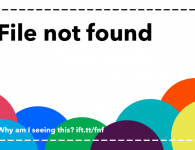
Facebook’s David Marcus tweeted it was liberating for Visa, MasterCard and others to defect last Friday and politely thanked the organizations for hanging in there as long as they did. See David Marcus October 11 Tweet
Marcus wasn’t explicit about why the defections were liberating, but my guess is that having these (old guard) financial firms on the Calibra governance board considerably slowed down the association’s progress. Threatened by regulators and U.S. Congress, these financial firms had to bow out, lest they be continually and strongly monitored going forward. See Senate Letter to Stripe CEO
Had these firms remained on the Calibra board, their decisions and votes would have undoubtedly been driven by fear and compliance worries rather than by innovation and global ecommerce goals. Having them off the board will allow Calibra to move faster – though of course they can’t hide from the regulators and still have to work with them in countries that are pushing back.
Some have speculated that Calibra desperately needs Visa and Mastercard for payment processing and payment system knowledge. But that is simply not true. Marcus ran PayPal and is intimately familiar with how the global payment systems work. So are many other payments-related companies and their employees who operate around the world. Any consumer can use their Visa or MasterCard at any merchant/payment acceptor who accepts them. And pretty much anyone can sign up for these card payments, unless they have serious credit or risk issues, and are therefore explicitly banned by the networks from participating in them.

Still No Banks on Board
In fact, it’s the banks who hold user funds and who sit on either end of the payment networks. Banks are the critical entities who control the workings and governance of the payment processors, and Calibra has not yet managed to get a single bank on board. By getting the (second choice) payment networks like Visa and MasterCard on board, Calibra certainly looked more legitimate, and optics are important. But it wasn’t enough to ease nervous opponents, and the costs of their participation may have outweighed the gains; hence last Friday’s “Calibra Liberation.”
The Myth of Blockchain Money Laundering Concerns
Contrary to popular belief, it can be easier to catch criminals and money launderers transacting on blockchains than it is to nab them when they use traditional banks. For example, one prominent former U.S. DOJ prosecutor, Katie Huan, said it was easier for her to catch criminals transacting in Bitcoin than it would have been had they transacted through banks. See Meet the Federal Prosecutor who Became the Face of Crypto Investing Robert Mueller caught the Russian hackers who broke into the DNC transacting in Bitcoin, and it could be that this money trail aided his July 2018 indictment. See July 2018 Mueller Indictment against Russian Hackers
Bitcoin transactions are public, and anyone can see and analyze them provided they have the right analytic tools. The harder part is tying the transactions to an individual’s identity but that can be done by requesting or subpoenaing the identity records held by the party where the criminal signed up to transact.
Likewise, all Libra transactions should be visible on the Libra blockchain and accessible to regulators, law enforcement and any other interested party. As with Bitcoin, any suspect Libra transactions would have to be tied to an identity so the law enforcers would need to gather records from the customer onboarding and off ramp exchanges. But this should be simpler than subpoenaing or gathering individual sets of money movement and identity records from every bank where laundered money moves along its path. With blockchain, money movement is much more centralized and easier to see, at least for now and the next few years, until blockchains proliferate.
Consumer Protections
Sometimes government regulations like Regulation E (for bank accounts) and Regulation Z (for credit cards) in the U.S. provide consumer protections. Other times, non-government entities augment or create their own buyer protections to gain consumer adoption. PayPal has done this well, and it’s reasonable to expect Libra will eventually follow given their common leadership heritage. (See PayPal Buyer Protections).
No Major Systemic Currency Risk Lurking
On the other hand, there is no huge lurking systemic risk as some regulators imply when they talk about a ‘run on the financial system.’ Each unit of Libra currency is backed on a one to one basis by a basket of currencies held in reserves. If anything, from a currency exchange rate point of view, it should be less risky for a consumer to hold Libras than it is to hold one of the currencies that comprise its basket (e.g. USD or EU). The blend of different currencies should make Libra more stable than any one of the basket’s individual currencies.
Aside from regulators and lawmaker pushback, what risks and challenges remain to Libra?
We still don’t have enough information on Calibra’s business and operating model (which should start getting decided at their Switzerland meeting this week). But here’s what we see as the current risks to Calibra and its Libra payment network:
- Viability of the Business Model in negative interest rate environment
Calibra charges $10M to be a Libra node operator which gives the operator a seat and vote at the Calibra governance table, but what do these operator members get in return?
- Presumably the currency holdings and reserves that back Libra will earn interest, which Calibra can keep since they are not paying Libra holders any interest.
- That interest should accrue to the Calibra network members to pay for their operating costs and allow them to earn revenue.
- But in a low or negative interest rate environment, this business model falls apart and Calibra may have to instead PAY banks to hold their Libra reserves.
2. Regulated Exchanges won’t trade in Libra if opponent regulators hold sway
3. Calibra needs partnerships with locations across the globe where unbanked can conveniently buy Libra with their cash
4. Fraud Detection and Mitigation
Frictionless ecommerce enabled by the Calibra wallet will quickly translate into frictionless scams perpetrated by criminals. The bad guys will inevitably come out in droves and figure out ways to scam the system and its naïve users. Calibra will have to invest considerable resources in fraud detection
5. Consumer Protections
- To gain meaningful adoption amongst the ‘banked’ population, Calibra will need to offer consumer protections commensurate with Visa and MasterCard zero liability protections that consumers enjoy on their cards.
- Facebook’s track record with Data Privacy may make many consumers justifiably nervous about using Libra payments. If Facebook is serious about data privacy, it should put its money where its mouth is and implement blockchain-based decentralized identity where users own and control their own identity data. If this doesn’t happen, distrust is justifiable, especially now that Facebook has a blockchain to work with.
The Battle has Just Begun
The contentious start to Libra represents a power struggle between Big Tech and Sovereign Governments. It would have been much easier to cheer for Libra if Facebook and Calibra were promoting and supporting a public blockchain cryptocurrency like Bitcoin that was not controlled by member companies. To Calibra’s credit, they mention a plan to move Libra to a public blockchain – starting in five years – when public blockchain presumably matures and scales so that it can handle their anticipated volume of transactions (which public blockchain can’t do today).
In the end, the battle is really between (overwhelmed) Sovereign Governments, Big Tech Gatekeepers like Facebook, and Web 3.0 where no one entity has any control save the user who controls his or her own information and identity.
Personally, I’m cheering for Web 3.0, powered by the decentralized web and public blockchains, but I know that will take many years to come about.
For the time being, I would tend to favor Big Tech over Sovereign States because at least Big Tech has a global infrastructure that can help address major looming global problems – but only if they can be trusted. And therein lies the rub 🙂
Additional Resources
View Free, Relevant Gartner Research
Gartner’s research helps you cut through the complexity and deliver the knowledge you need to make the right decisions quickly, and with confidence.
Category:
read more at https://blogs.gartner.com/digital-marketing by Avivah Litan
Cio









